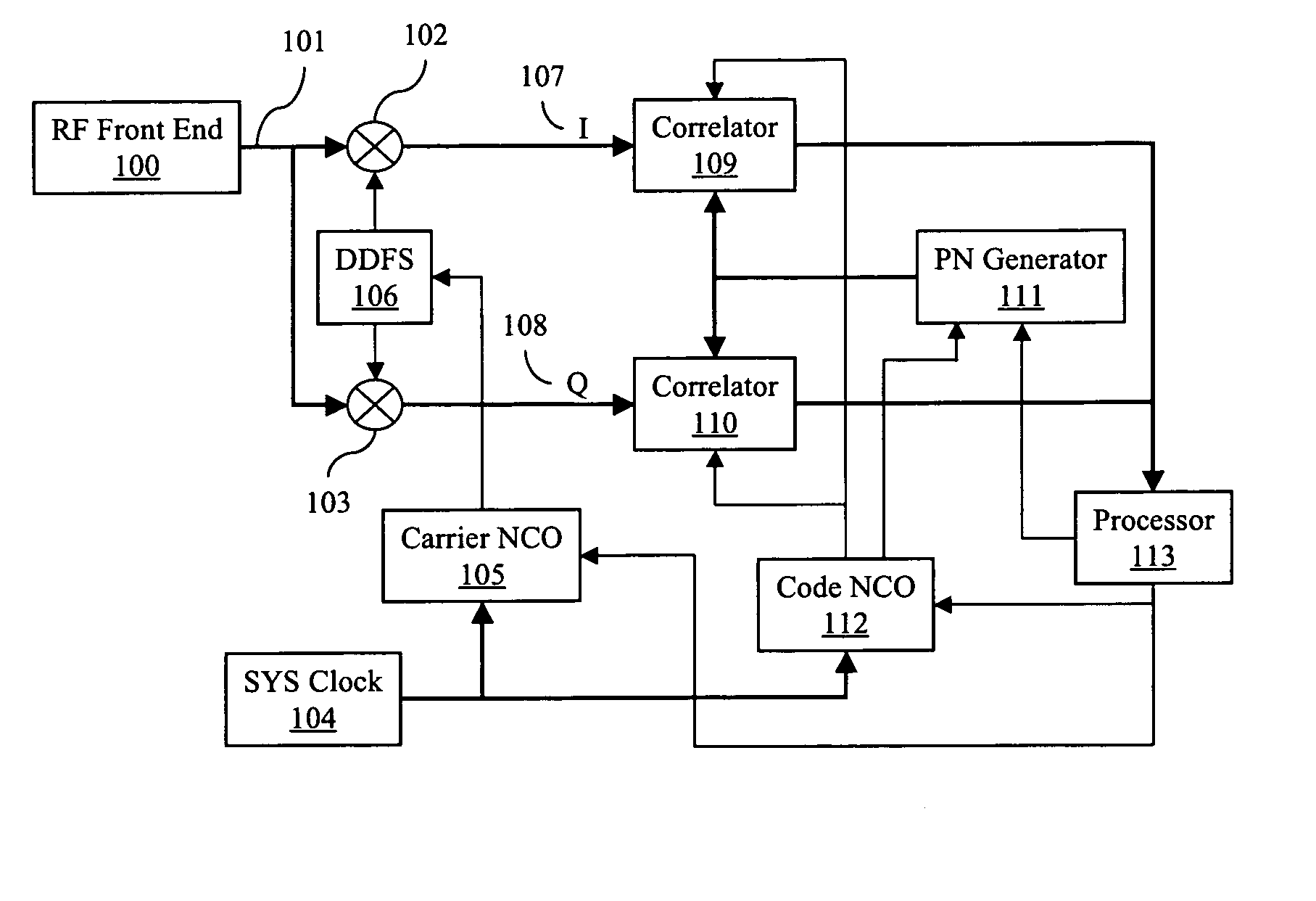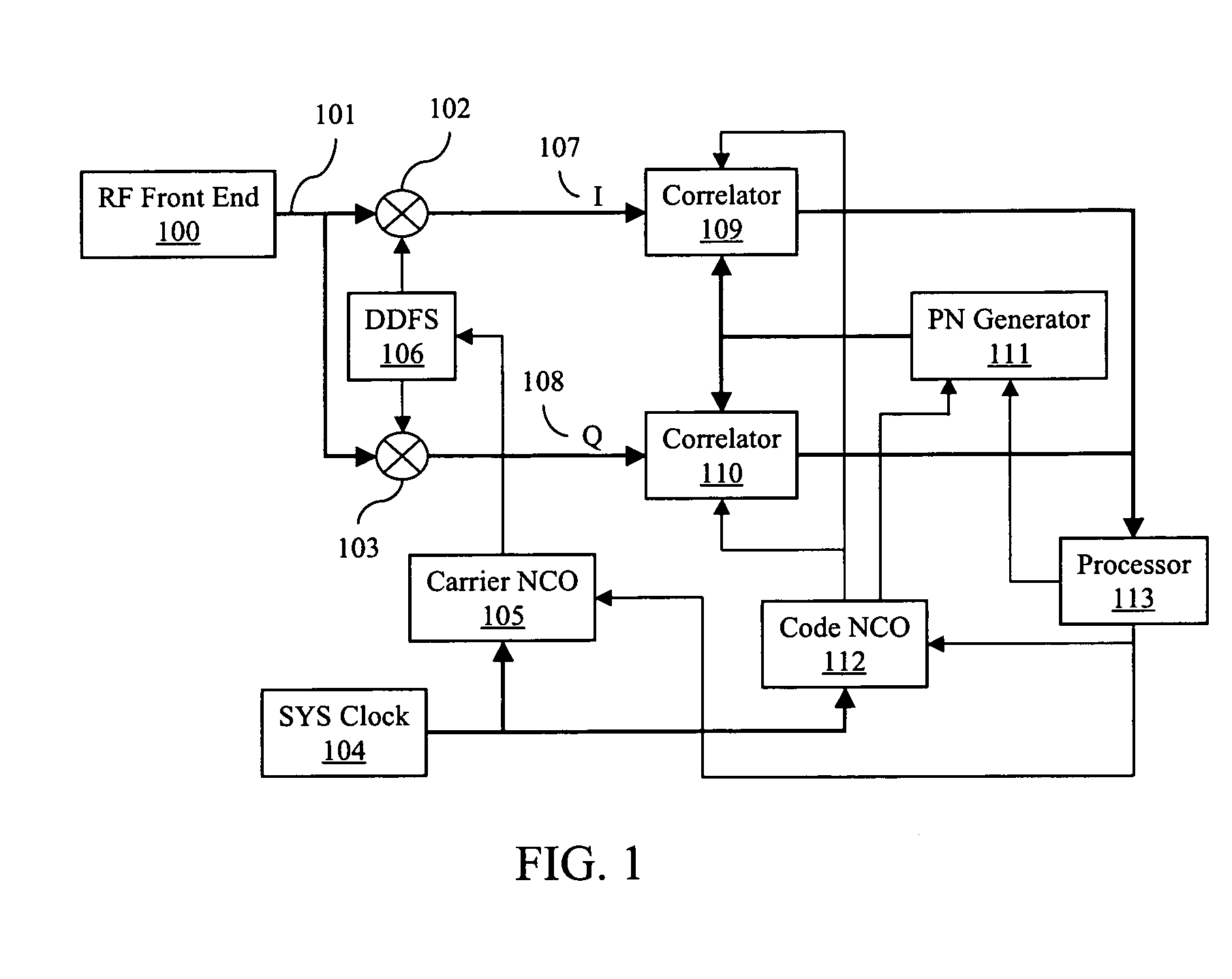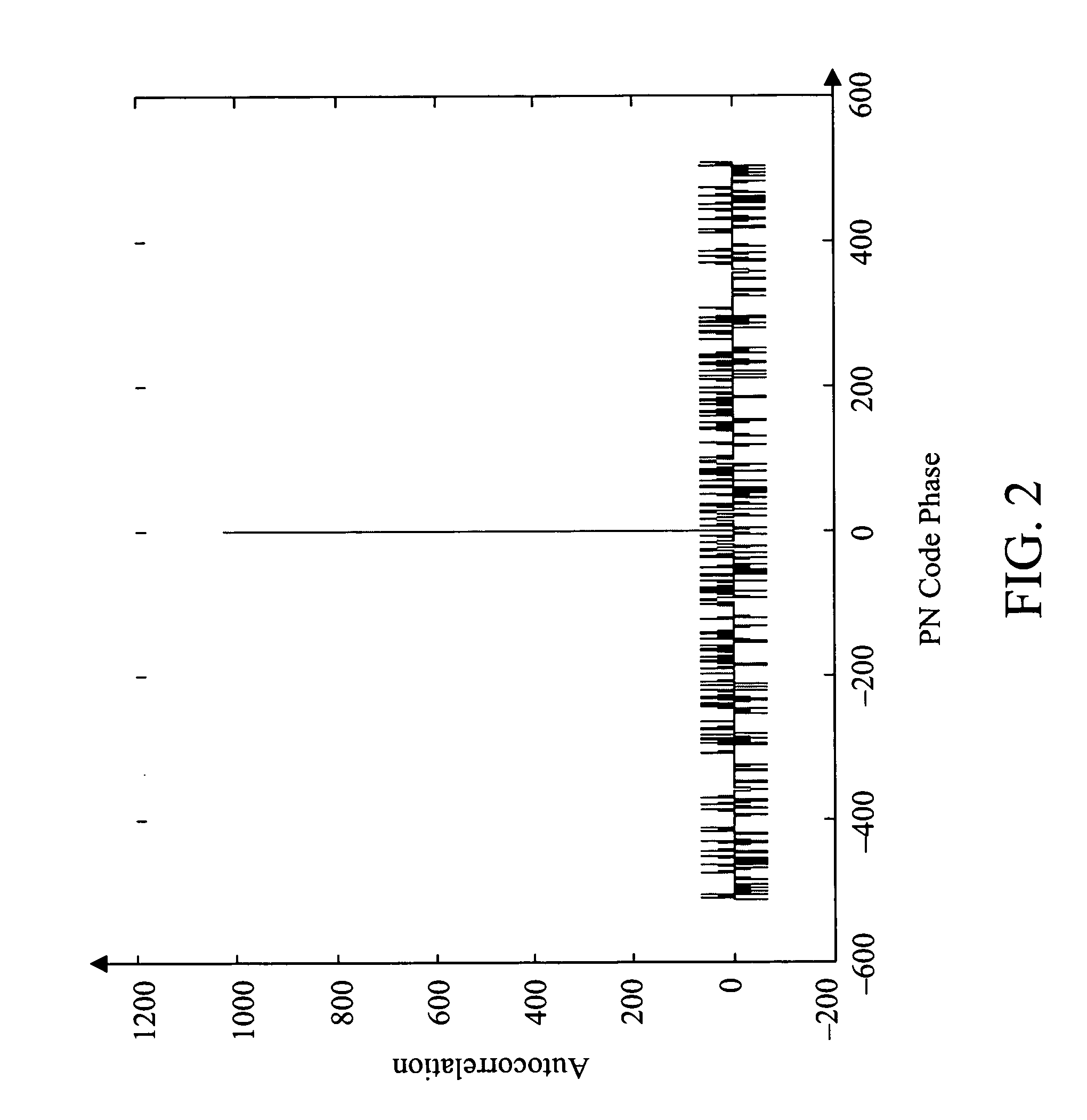False reacquisition mitigation in high sensitivity navigational satellite signal receivers
a technology of high-sensitivity navigational satellite and signal receiver, which is applied in the field of navigational signal receivers, can solve the problems of receiver loss of signal tracking, local oscillator instability, and input signal blockage for a long time, and achieve the effect of detecting and reducing the probability of false reacquisition in the receiver, and facilitating identification
- Summary
- Abstract
- Description
- Claims
- Application Information
AI Technical Summary
Benefits of technology
Problems solved by technology
Method used
Image
Examples
Embodiment Construction
[0017] A receiver according to an embodiment of the present invention is illustrated in FIG. 1. An intermediate frequency (IF) signal input 101 enters a baseband section of the receiver from an analog-to-digital converter (ADC) output of a conventional RF front-end 100. The IF input is multiplied in IF mixers 102 and 103 in-phase and in quadrature, respectively, with a local frequency signal generated by a direct digital frequency synthesizer (DDFS) 106. This mixing involves multiplying the ADC output 101 by the local DDFS frequency in-phase which generates the in-phase (I) component 107. In a parallel path the same signal 101 is multiplied by the DDFS frequency in quadrature (i.e., with a phase shift of 90 degrees) to produce quadrature (Q) component 108. The DDFS 106 is driven by a carrier numerically controlled oscillator (NCO) 105. In addition, carrier NCO 105 receives phase and frequency corrections from a processor 113. Because of this correction, the DDFS frequency and phase ...
PUM
 Login to View More
Login to View More Abstract
Description
Claims
Application Information
 Login to View More
Login to View More - R&D
- Intellectual Property
- Life Sciences
- Materials
- Tech Scout
- Unparalleled Data Quality
- Higher Quality Content
- 60% Fewer Hallucinations
Browse by: Latest US Patents, China's latest patents, Technical Efficacy Thesaurus, Application Domain, Technology Topic, Popular Technical Reports.
© 2025 PatSnap. All rights reserved.Legal|Privacy policy|Modern Slavery Act Transparency Statement|Sitemap|About US| Contact US: help@patsnap.com



